

| The most popular destination in the Caucasus | |
Tbilisi (Georgia), May 14th 2014
|
|
|
|
|
You wouldn’t probably expect it, but Georgia is nowadays a popular holiday destination for the more adventurous traveller. Especially people from Poland and Israel have discovered Georgia as a beautiful destination with great potential. From Poland, there are even daily budget flights, which means that most Poles can fly up and down to Georgia for less than a hundred Euros. And that's a great deal for this Caucasian destination. In addition, most western nationalities do not need a visa anymore for this mountainous Caucasus country, which means that the formalities are kept to a minimum. Georgia wants to be a popular holiday destination and it makes good progress. However, we came overland from Armenia and our first main conclusion was that Georgia looks much more developed than its smaller southern neighbour.
|
|
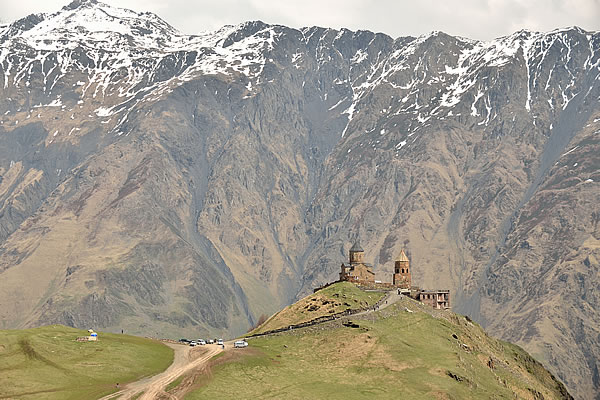 |
|
The beautifully located Tsminda Sameba Church in Kazbegi |
|
Some destinations in Georgia are immensely popular and are visited by almost every traveller. That means these destinations can be busy, especially in the high season; think of Kazbegi, Mestia and the Black Sea coast. But there are also many beautiful destinations that are further away from the tourist trail, making it relatively easy to circumvent the tour groups. A special destination in Georgia and worthwhile mentioning it, is the Stalin Museum in the city of Gori. Joseph Stalin was Georgian, a fact that seems to blind many people of Gori for the horrific things the former Soviet leader has committed during his rule. People prefer to see him as one of the key figures that led to the downfall of Nazi Germany. The Stalin Museum in Gori is primarily a tribute to the man who (also) has been responsible for millions of deaths during his regime, but the museum spends little space on this part of his rule. But they have enough space in the building to run a souvenir shop where you can buy all sorts of Stalin knickknacks, from Stalin wine and lighters, to mugs bearing the effigy of former Soviet ruler. |
|
 |
|
Stalin wine and thermos bottles for sale in the Stalin Museum in Gori |
|
For most people, the high Caucasian mountains are the main reason to visit Georgia. The highest mountain in Georgia is Mount Kazbek (5047 m), and together with its slightly lower siblings they provide an extremely spectacular scenery in the north of the country. The highest peaks of the mountain ranges define the natural separation between the northern part of the Caucasus (Russian territory), and the three typical South Caucasian countries: Armenia, Georgia and Azerbaijan. However, most areas in the high part of the Caucasus are inaccessible from late autumn to early spring. Large amounts of snow block the higher passes which means that spectacular areas like Khevsureti and Tusheti are not accessible. The government is trying to keep the roads to the most popular tourist destinations open, which means that the Kazbek and Svaneti regions are accessible year round.
|
|
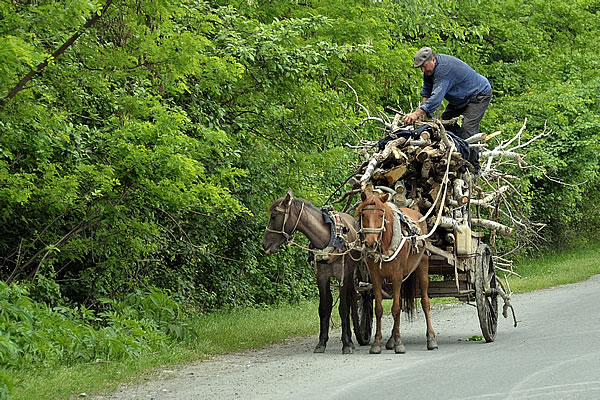 |
|
Collecting wood with horse and cart |
|
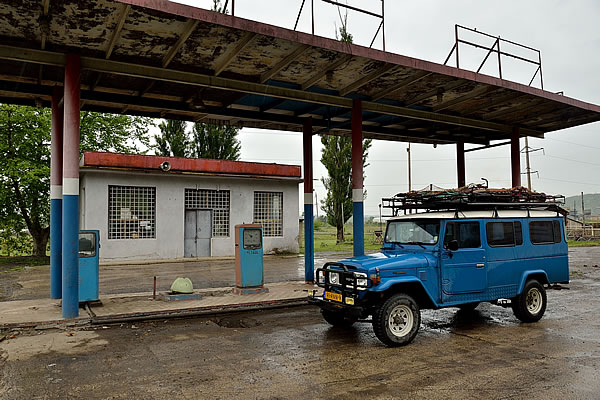 |
|
A petrol station from the Soviet era |
|
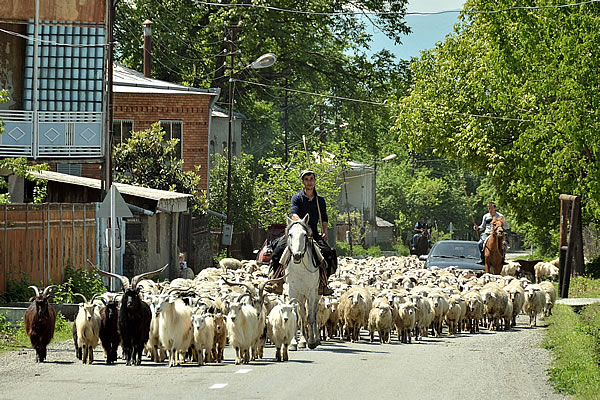 |
|
The old fashioned way of keeping animals |
|
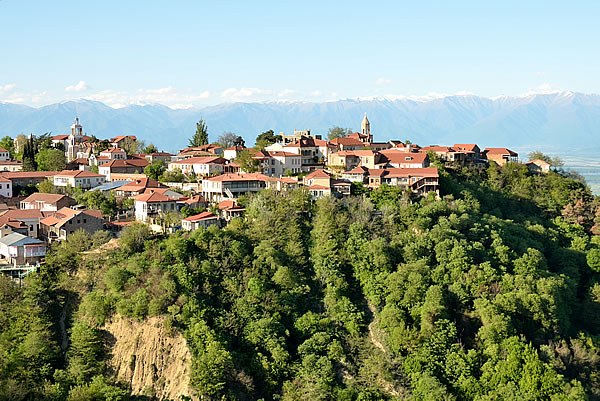 |
|
Sighnagi village with the High Caucasus in the background |
|
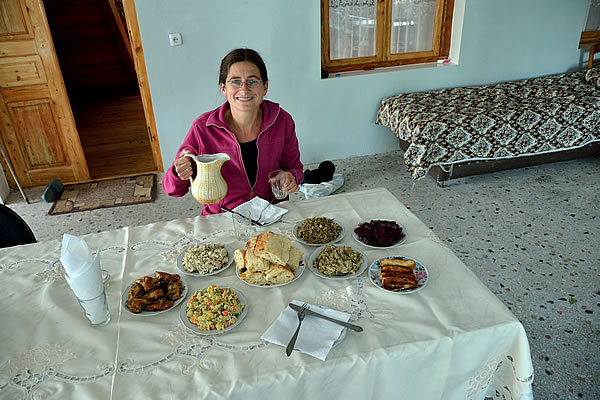 |
|
Great home made food in a home stay in Lagodekhi © copyright - Babakoto.eu / 2014 |
|